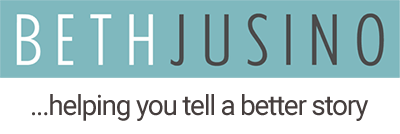I’ve been writing a lot of queries and book proposals lately for my clients, and I’m loving it. I may be the only person in publishing who really loves the process of breaking a book down into a short pitch.
For many writers, the process of writing a query or a proposal is as hard—or harder—than writing the book itself. Yet it’s a critical, and often project-defining, step. Even if you’re planning to self publish, knowing how to pitch your book is a great way to explore and examine your project more deeply, and give you an impartial perspective on its commercial potential. (Yes, I wrote a complete book proposal for the independently published The Author’s Guide to Marketing, which then became the foundation for my marketing copy, my outline, and my bigger marketing plan.)

The Book Pitch
Agents won’t read your whole manuscript, nor do they have time to take your phone call and listen to you explain your great idea. They want a written, concise presentation of your idea. So…query letter and book proposal. This is the pitch.
A book pitch is, at its core, the opportunity for you to share your passion for your topic, and to make the case for why you are the right writer and this is the right time for this book. Like the proverbial snowflake—and book, for that matter—no two proposals are exactly alike. There are dozens of books and articles written about how to write the “perfect” proposal, but back when I was a literary agent, I used to review a few hundred proposals a month, and I can tell you that there’s no one correct format for writing a book proposal. Don’t get too stuck on those details.
Instead, identify your unique strengths and your uniquely marketable angle, and then highlight that. If you’re a social media influencer with hundreds of thousands of followers, start with that. If you have a fantastic, grab-them-as-they-walk-by hook, then put that up front, bold and centered. If your work in progress is a humor book, the proposal should be funny. If you are a journalist uncovering a story, the proposal will focus on your unique, never-before-seen research.
Once you’ve identified your unique strength and know how to use it, there is other information that will help a publisher or agent understand your work.
Here are three key questions that every proposal must answer, whatever you choose to call them and in whatever order you present them.
Here are three key questions that every proposal must answer, whatever you choose to call them and in whatever order you present them.
Is this a good idea for a book?
Is the writing ready for publication? This is usually addressed through a short, marketing-style description of your work, a synopsis and/or annotated chapter outline, and the sample chapters themselves.
Are you the right person for the job?
Do you have the authority, knowledge, and experience to be writing for this topic? Do you have an audience already, or a plan for what you can do as an author to promote the book when it releases? You’ll answer these questions through your author bio, and possibly separate sections for endorsements and influencers, information about your platform, and your marketing plan for how you will take those resources and promote yourself and your book. Ask yourself hard questions here, because the agent/publisher will. Do you have a strong enough platform and credibility to sell books?
Is this a good time for this idea?
There’s a difference between your role as an author and the wider market’s interest in your topic. Books, like everything, follow trends. Knitting is popular today, but macramé is not. Ask yourself “Why is THIS the right time for my book?” You’ll usually answer this question through a thoughtful (not quick or vague) overview of the audience for the book, the comparative titles (other titles that your future readers are reading now, preferably published in the past five years), and other ways that the author makes the case for why now is the time for this book. I’ve seen successful proposals link their book to current movies and TV shows, current events, and even census data.
Remember: your proposal is your business plan. This is your pitch to a potential publishing partner, inviting them to invest a significant amount of time, money, and resources in your idea.
If you go through the process of proposal writing, you will discover a deeper understanding of your content, and a greater passion for sharing it with readers. After all, now you KNOW this is the right book, written by the right person, ready to be released at the right time. Readers will line up to buy copies. Reviewers will swoon. Lives could be changed.
